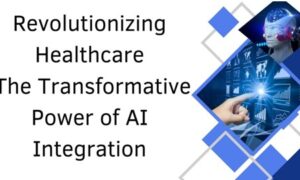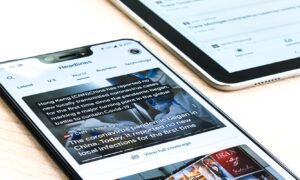The introduction of telemedicine in the 1960s dramatically changed how doctors could treat patients and hospitals could manage their operations. Now, we’re going to a new wave of digital health innovations that are considerably altering both how doctors identify and treat patients additionally to how hospitals manage their operations. A particular innovation is React Development-a framework for creating user interfaces (UIs) with multiple-use components that was initially created by Facebook engineers but is becoming used across industries from education to manufacturing.
From smartphones to artificial intelligence, the earth around us is altering within an ever-accelerating pace. It introduced incredibly exciting developments in healthcare and medicine. Consequently, there is not a far greater problem here. I am at healthtech database integration, the kind of our healthtech app development company to change this industry by unleashing new products and services that could improve people’s endurance at every level from prevention through treatment and recovery completely up through extended-term monitoring and maintenance.
We’ve been helping our clients achieve real progress since 2010 by creating customized solutions based on their requirements instead of just reacting to whatever is really popular in an instant within the finish, things that work for starters company may not use another!
The Evolution of HealthTech Applications
You might be surprised to learn that healthtech applications are not new. In fact, they’ve been around for quite some time and have been steadily improving the way patients interact with their healthcare providers.
The evolution of these applications began in the early 2000s when electronic health records (EHRs) were introduced to help keep track of patient information across multiple facilities and providers. As EHRs became more widespread, they became more sophisticated providing tools that allowed doctors to easily access patient information and communicate with other clinicians through secure messaging platforms.
The next big step was telemedicine: real-time video consultations between patients or their caregivers and physicians who were miles apart from one another but connected via computers or smartphones equipped with cameras and microphones. This gave doctors an opportunity to see what was happening inside their patients’ bodies without having them come into their offices; likewise, it gave patients access to specialized care without having them travel far distances just for checkups or treatment plans (and reduced wait times!).
In addition, many companies have developed mobile apps designed specifically for use by healthcare professionals working within hospitals today including nurses who need quick access at all times while tending wounds during surgery procedures; pharmacists who must dispense medications based on specific instructions from doctors before administering them according as directed; technicians responsible for sterilization procedures where dangerous bacteria could thrive if left unchecked…you get idea!
Understanding React Development in HealthTech
React is really a JavaScript library for building user interfaces. It was created by Facebook and has become one of the most popular choices for building modern web applications.
You can think of React as a declarative programming framework that helps you create UI components using a simple syntax. It’s also fast, scalable and easy to learn.
When you need to build complex UIs in your app, React will be able to handle it effortlessly without any performance issues or slowdowns in performance as more users interact with your app at once (we’ll get into this later).
Relevance of React in HealthTech app development
React is really a JavaScript library which is used to construct user interfaces. It’s declarative and efficient, making it ideal for building complex applications with rich data. React was created by Facebook in 2012, but has since been open-sourced under the BSD license. Today, many companies use this library including Airbnb and Uber and now you can too!
Real-world Examples of How React-powered Apps Are Enhancing Patient Care
React is a popular framework for creating innovative applications. It’s used by some of the world’s biggest companies, including Facebook and Airbnb, to build their websites and apps.
In this section, we’ll take a look at real-world examples of how React-powered apps are enhancing patient care. We’ll also explore how react development services are changing the way people interact with health services and their medical records.
The Future of HealthTech and React Development
The future of HealthTech and React development is bright. This is because React has become the preferred framework for creating innovative applications, as well as user interfaces. The reason behind this trend is that it’s simple to learn, easy to use and highly customizable.
It also allows developers to create high-performance web apps without having to worry about rewriting code every time they want to add new features or make changes in their application.
React is an increasingly popular framework for creating innovative applications.
React is an increasingly popular framework for creating innovative applications. It’s easy to use, and its flexibility makes it a great choice when developing applications that need to be fast and responsive.
The popularity of React can be attributed to its ease of use, as well as its ability to work seamlessly with other frameworks or libraries such as AngularJS, VueJS and even jQuery. In addition, React Native allows developers to create native mobile apps using JavaScript instead of Objective-C or Swift programming languages (as used by Xcode).
Conclusion
Healthcare needs to reinvent itself in order to meet the challenges of today’s world. The good news is that there are a number of exciting new technologies on the horizon that could revolutionize how we diagnose and treat disease. If you want to learn more about these developments, contact us today!



































